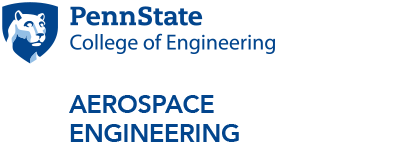Astrodynamics: Orbit and Attitude Dynamics and Control of Spacecraft
Research in the area of orbit and attitude dynamics and control of spacecraft is focused on the translational and rotational motion of orbiting spacecraft, and the control necessary to force a desired behavior, as well as the supporting modeling and simulation necessary to analyze these systems.
Key Faculty:
Research Focus Areas
- Theoretical and Applied Astrodynamics
- Space Situational Awareness
- Optimal Satellite Reorientation
- Continuous-Thrust Trajectory Optimization
- High-Accuracy Orbit Determination
- Space Mission Design and Engineering
- Aerospace Systems Design Optimization
- Space Flight Engineering
Astrodynamics Research Group of Penn State
The Astrodynamics Research Group of Penn State (ARGoPS) is a research lab associated with Penn State’s aerospace engineering department. Established in 2017, ARGoPS was formed to strengthen and exhibit the collaborative astrodynamics research environment that Penn State has to offer. Research areas include all of astrodynamics, such as orbital and attitude motion of Earth satellites, interplanetary mission design, spacecraft situational awareness, orbit determination, and trajectory optimization.
More information can be found on the ARGoPS website.
Research Areas
- Aeroacoustics
- Air-breathing Propulsion
- Astrodynamics
- Autonomous Flight and UAVs
- Computational and Experimental Fluid Dynamics
- Flight Science
- Multifunctional Structures and Nanomaterials
- Rotorcraft Engineering
- Space Propulsion and Plasmas
- Structural Dynamics and Adaptive Structures
- Vehicle Dynamics and Control
- Vehicle Systems Engineering
- Wind Energy



